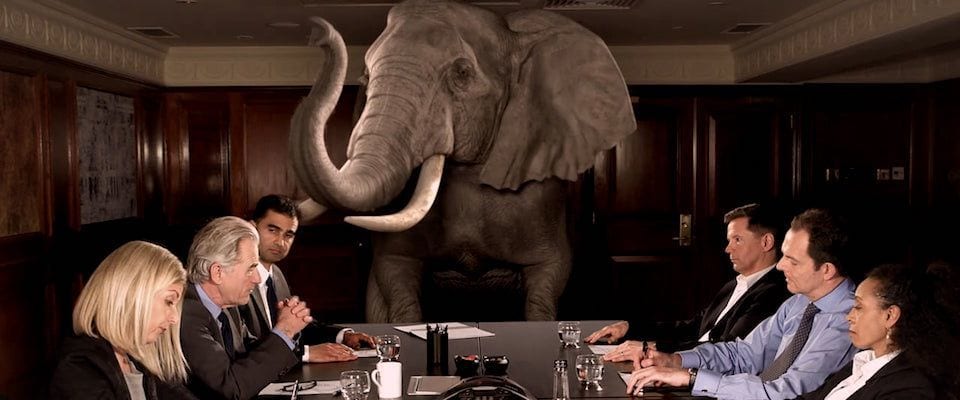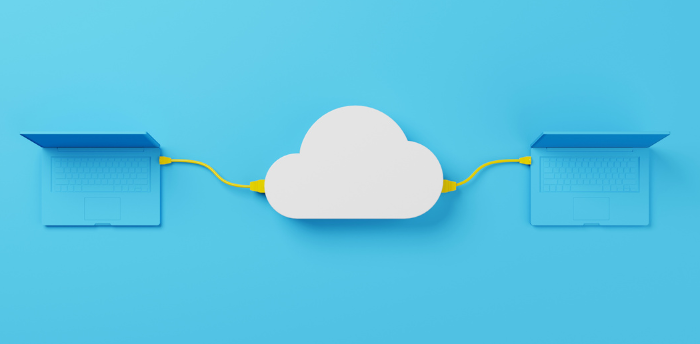Share
Author
Sam Bayer
Share
Confronting the elephant
We’re approaching 100 days since SAP’s April 10, 2018 announcement of the industry’s “first of a kind” pricing model based on digital access. Unfortunately, the proverbial Indirect Access elephant is still in the room. As of this writing, I have direct evidence that SAP is still in the anti-competitive “innovation prevention” business. This is based on SAP client’s inability to negotiate fair pricing for indirect access licenses in a timely fashion and without undue pressure exerted, and stress induced by, their SAP Account Manager.
While there was great hope expressed in the flurry of analysis and commentary immediately after the April 10 announcement including mine here, unfortunately it appears as if plus ça change.
As a related aside, one oddity that I can’t get over is this: you would have thought that since the anxiety of Indirect Access took center stage at SAPPHIRE 2017 that SAP would have been proud to announce its “resolution” at SAPPHIRE 2018. Maybe even as happy as they were to announce “The Intelligent Enterprise” and “C4/HANA”??? :-)
But nooooooo.
There was zero mention of Indirect Access by any SAP presenters at SAPPHIRE except for one session sponsored by ASUG. I wonder why? Maybe they know that the elephant still lives? My SAPPHIRE wrap up is here.
Every so often, while covering some other topic, you can briefly hear the elephant’s trumpet. One such elephant sighting was picked up by my favorite analyst Den Howlett. He attended an SAP Certified third party mobile software provider’s (Neptune Software) user summit in Oslo, Norway. Lucky Den. He observes:
“At the event, a number of people pulled long faces when the topic of indirect access came up. As expected, no-one wanted to go on the record since it is becoming clear that negotiating positions are hardening yet remain fragmented across industries.”
Speaking of third parties, I had a delightful conversation a few weeks back with Frank Bayer (no relation) who is President of the International Association for SAP Partners (IA4SAP). His association has funded a 2.5 year long legal research and education journey that strongly suggests that SAP’s Indirect Access is indeed in violation of German antitrust laws. IA4SAP are plotting their next steps on this legal journey at this very moment. I will remind readers that their conclusions jibe with those of Duke’s Professor Richman vis-a-vis US antitrust laws as expressed in the now infamous Duke Memorandum.
That conversation led me to meet with Patrick Quellmaz who is a Managing Director at Voice-CIO, a German based consortium of CIOs…no vendors allowed! His organization has also taken up the “SAP is acting as a monopoly” cause in Germany and has issued a news release on 15 Feb 2018 that in part says:
“… VOICE is calling on the German government to take measures to make it easier for user companies to switch between alternative platforms and to improve the compatibility of platforms with each other.”
In fact, SAP’s licensing model is an impediment to enabling platforms to be compatible with one another by making it cost prohibitive to integrate them. Patrick tells me that VOICE-CIO is studying the impact that SAP’s newest document based licensing model has on their conclusions that SAP is acting in violation of both German and EU antitrust laws. His organization will be issuing their position, and announce their action plan, in the coming weeks. He promised me that I’ll be on the short list of people that he will brief in exchange for my publicizing their findings to my readers.
Stay tuned!
Speaking of monopolies and antitrust, the moment that I’ve been waiting for has finally arrived.
SAP is being taken to court.
Teradata is suing SAP for both IP and Antitrust violations. I wrote about that a few days after their 19 June 2018 filing in the US District Court of Northern California. What’s really important about this case is that Teradata is tackling the #1 issue that has been the stumbling block to anyone in the legal community enthusiastically taking up the “Indirect Access Licensing is illegal” cause…namely, does SAP actually have “market power” aka, are they truly a monopoly that is causing their customers harm?
Every legal authority that I’ve spoken to and/or has looked at this topic, has concluded that SAP’s behavior violates antitrust laws. That is never in doubt. However, proving that in court is also predicated upon proving that SAP is a monopoly in the market segment in question. Fundamentally, any company can institute any policy or pricing action that they desire if their customers are free to accept it or not. If customers don’t have any alternative but to accept the new policy/pricing, that’s a pretty good indication that they are being “monopolized”.
Here is a simple monopoly test.
Call your internet provider and tell them you’re contemplating switching providers. How do they respond? — “Oh, I just found this discount that I’d like to offer you”.
Try that with your SAP Account Rep. How does he/she respond? — “ROTFL”
That’s the question that Teradata is attempting to answer in the courts. Is SAP a monopoly in the Tier 1 ERP market?
If they get the monopoly verdict, that becomes a game changer in the SAP ecosystem.
Once it is agreed that SAP holds market power, there are many things that they can no longer do, such as this little tidbit that I lifted from the U.S. versus IBM antitrust lawsuit which was filed in 1969:
“The U.S. also alleged that IBM blocked competition by prematurely announcing computers at unrealistically low prices and tight delivery deadlines. The U.S. alleged that IBM announced such systems — like its System/360, which it claimed could do more than competing models and would be introduced fast — just to block its competitors from the market. This, the government alleged, IBM did, even though it knew that its product was years from completion.”
Can anyone say S/4Hana? C/4Hana?
By the way, 13 years later the US Department of Justice dropped their antitrust case against IBM. While the US didn’t win, neither did IBM. The intense scrutiny that IBM received during that period changed them forever. No one would ever accuse IBM of holding a monopoly position in any of the markets that they serve today. But they are still alive and are a significant contributor to the world economy.
Oh, and one last point, I have nothing against elephants. I simply want them acknowledged and treated fairly. Evidently so did a whole bunch of consumer activists and animal rights protection organizations when they filed a lawsuit in 2000 against the Ringling Brothers and Barnum & Bailey’s Circus. While that lawsuit was eventually thrown out of court and a fascinating series of RICO countersuits were filed (and won) by the Circus, eventually in May 2016 all elephants were retired from the circus.
One year later, on 21 May 2017, the Circus folded their tents permanently after 146 years of business.
Sad. Very sad.
I guess the moral of the story is don’t ignore the elephants.
Onward!
Sam









